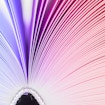Center for Computational Quantum Physics Announces New NYC Graduate Fellows
The Flatiron Institute’s Center for Computational Quantum Physics (CCQ) is pleased to announce the 2023 recipients of its CCQ-NYC graduate fellowships: Alev Orfi, Jaylyn C. Umana and Sophia Wolczko.
The CCQ graduate fellows program works in partnership with Columbia University, New York University and, beginning this year, The City University of New York to bring outstanding young scientists to New York City. Through the CCQ-funded fellowships, each university can accept an additional graduate student every other year, with up to three active fellows at a university at a given time. Fellows receive full financial support, a CCQ mentor and a workspace in the CCQ for up to six years, provided they perform research in a field of interest to the CCQ.
The fellowships are intended to nurture collaboration within New York City’s quantum physics community, says CCQ co-director Andy Millis. “By providing universities with a mechanism for recruiting excellent students to New York while increasing the size of their graduate programs, the program will strengthen the local quantum community, increase links between the universities and CCQ, and introduce more people to CCQ’s unique approach to quantum research.”
The fellowships are named after New York-based scientists whose work laid the foundations of the science CCQ pursues.
Myriam Sarachik Flatiron Fellowship

The CCQ-CUNY Graduate Center fellowship is named for the experimental physicist Myriam Sarachik, a former professor of physics at The City College of New York who, in the face of gender discrimination and significant personal obstacles, made significant breakthroughs in low-temperature solid-state physics.
The first fellow under the new program will be Jaylyn C. Umana, currently a senior at Columbia University studying physics and mathematics. Umana began his scientific career in high school, working on condensed matter research on bulk transition metal oxides with Professor Jack W. Simonson of the State University of New York at Farmingdale. As a Ph.D. student at the CUNY Graduate Center, Umana is broadly interested in condensed matter theory and the development of computational methods.
“To me, receiving this fellowship means that people actually listened to my ambitions, took into consideration what I thought to be interesting research, and presented me with the opportunity to pursue those ambitions and to do that research,” says Umana, who for years had been interested in one day working at the CCQ.
Joaquin Luttinger Fellowship

The CCQ-Columbia University fellowship is named after former Columbia University professor Joaquin (Quin) Mazdak Luttinger, who established important aspects of the modern understanding of semiconductors and metals, including the first comprehensive theory of the many-body physics of interacting electrons in solids.
The 2023 Luttinger Fellow will be Sophia Wolczko. She will graduate this spring from the University of California, Santa Barbara’s College of Creative Studies with a degree in physics. Wolczko currently researches polarons in organic conducting polymers using density functional theory and many-body perturbation theory. As a Ph.D. student at Columbia, she’s interested in method development for computational tools that can accurately and efficiently capture the physics of emergent phenomena.
“To me, the Joaquin Luttinger Fellowship means academic freedom,” Wolczko says. “From the unique structure that facilitates collaboration to the wide variety of projects and interests represented at the CCQ, this fellowship will give me access to a style of learning — one difficult to find in academia — that will allow me to pursue interesting physics in the most efficient way possible and will provide me with the resources to take full advantage of these opportunities.”
Pierre Hohenberg Fellowship

The CCQ–New York University fellowship is named for theoretical physicist and former NYU professor Pierre Hohenberg, who made profound discoveries in superconductivity, statistical physics and nonlinear dynamics. The celebrated Hohenberg-Kohn theorem is foundational to CCQ’s work.
The 2023 Pierre Hohenberg Fellow will be Alev Orfi, who is completing her master’s degree in physics at the University of Waterloo in Canada after studying as an undergraduate in math and physics at McGill University in Montreal. Orfi previously was a summer intern at the Flatiron Institute and has worked on near-term quantum algorithms for classical sampling problems with Dries Sels, a CCQ associate research scientist and NYU physics professor. As a graduate student at NYU, Orfi plans to continue working at the intersection of condensed matter physics, quantum information and machine learning.
“This fellowship not only gives me the freedom to focus on research I find exciting, but it gives me the opportunity to join the research community at CCQ,” she says. “I look forward to learning from the leaders of the field and contributing to cutting-edge many-body quantum research.”


